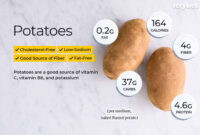Training for a half marathon requires a strategic approach not only to your running routine but also to your nutrition. Proper nutrition plays a vital role in fueling your body and optimizing performance during training. In this article, we will explore the key factors to consider when it comes to nutrition for half marathon training.
Macronutrients, namely carbohydrates, proteins, and fats, are the main sources of energy for your body during training. Carbohydrates should be the foundation of your diet, as they provide readily available energy. Include whole grains, fruits, and vegetables in your meals to ensure an adequate intake of carbohydrates.

Proteins are essential for muscle repair and recovery. Incorporate lean sources of protein such as chicken, fish, beans, and tofu into your diet. Aim for a moderate protein intake to support your training demands.
Fats, although often misunderstood, are crucial for overall health and endurance. Opt for healthy fats like avocados, nuts, and olive oil. These fats provide long-lasting energy and aid in the absorption of fat-soluble vitamins.
Hydration
Staying properly hydrated is key to maintaining performance and preventing fatigue during training. Aim to drink enough water throughout the day, especially before and after your runs. During long runs, consider carrying a water bottle or utilizing hydration belts to replenish fluids.
Additionally, electrolytes play a vital role in hydration. Include electrolyte-rich foods such as bananas, oranges, and coconut water in your diet. Electrolyte drinks can also be beneficial during intense training sessions.
Timing of Meals
The timing of your meals and snacks is crucial for optimizing energy levels during training. Aim to eat a balanced meal consisting of carbohydrates, proteins, and fats about 2-3 hours before your run. This will allow enough time for digestion and nutrient absorption.
If you’re running early in the morning or on an empty stomach, a light snack such as a banana or a granola bar can provide the necessary fuel. After your run, consume a combination of carbohydrates and proteins within 30 minutes to aid in muscle recovery.
Supplements
While a well-balanced diet should provide most of the necessary nutrients, some runners may benefit from certain supplements. Consult with a healthcare professional to determine if you should consider supplements such as omega-3 fatty acids, vitamin D, or iron.
Meal Ideas
Here are a few meal ideas that can help you meet your nutritional needs during half marathon training:
Meal
Components
Breakfast
Whole grain toast, scrambled eggs, avocado slices
Lunch
Grilled chicken breast, quinoa, steamed vegetables
Snack
Greek yogurt with berries and a handful of almonds
Dinner
Salmon, sweet potato, roasted broccoli
Conclusion
Proper nutrition is essential for half marathon training. Focus on consuming a well-balanced diet that includes carbohydrates, proteins, and fats. Stay hydrated, time your meals appropriately, and consider supplements if necessary. By fueling your body properly, you will optimize your performance and achieve your goals during training.


